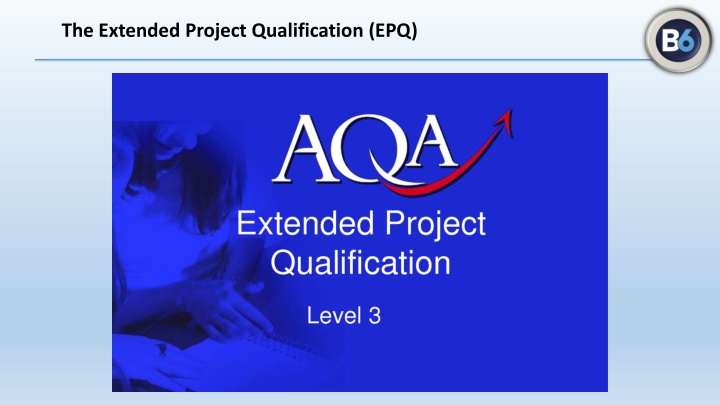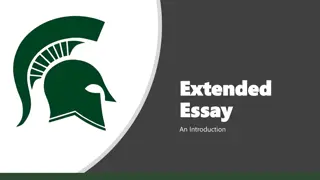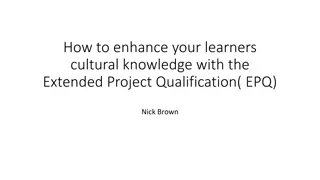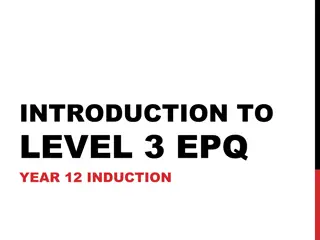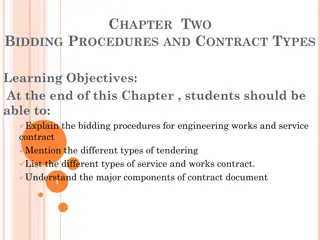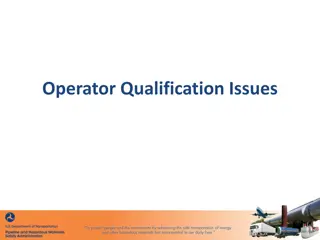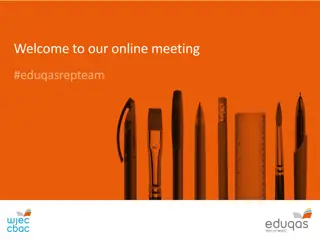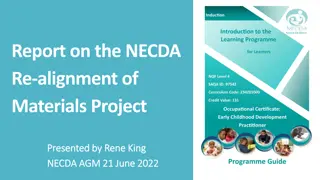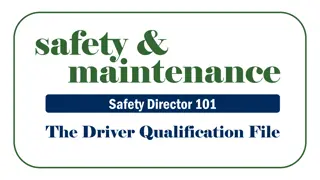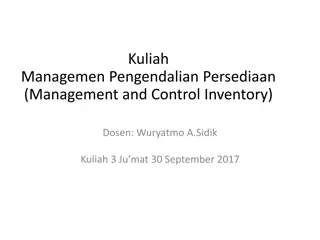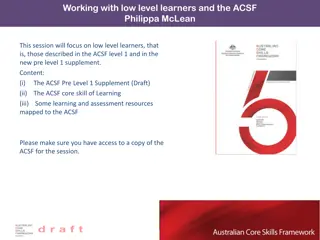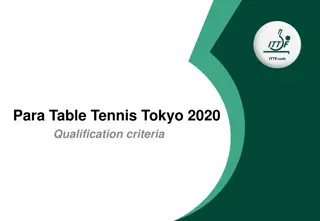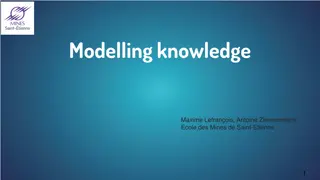The Extended Project Qualification (EPQ) - Enhancing Skills and Knowledge at Level 3
The Extended Project Qualification (EPQ) is a Level 3 qualification that allows students to delve into a topic of personal interest or expand on their study areas. With a focus on autonomy, students develop research, communication, and critical thinking skills while managing a project from conception to presentation. Through supervised guidance, students acquire essential skills such as research, ICT, project management, formatting, and presentation. This qualification emphasizes individual project planning, critical analysis, and effective communication to reach set objectives and evaluate outcomes.
Download Presentation

Please find below an Image/Link to download the presentation.
The content on the website is provided AS IS for your information and personal use only. It may not be sold, licensed, or shared on other websites without obtaining consent from the author.If you encounter any issues during the download, it is possible that the publisher has removed the file from their server.
You are allowed to download the files provided on this website for personal or commercial use, subject to the condition that they are used lawfully. All files are the property of their respective owners.
The content on the website is provided AS IS for your information and personal use only. It may not be sold, licensed, or shared on other websites without obtaining consent from the author.
E N D
Presentation Transcript
The Extended Project Qualification (EPQ) The Extended Project is a Level 3 qualification which can contribute as an extension from studies for any other qualifications at Level 3. The Extended Project will develop and extend from one or more study areas and/or from an area of personal interest or activity outside the main programme of study. It will be based on a topic chosen by the student and agreed by the centre. Delivery of the Extended Project Qualification in centres will involve some teaching of the necessary skills, supervision and assessment of the student s progress. It will involve extended autonomous work by the student. It will require in total 120 guided learning hours.
The Extended Project Qualification (EPQ) Students are required, with appropriate supervision, to: choose an area of interest; draft a title and aims of the project for formal approval by the centre; plan, research and carry out the project; deliver a presentation to a non-specialist audience; provide evidence of all stages of project development and production for assessment.
The Extended Project Qualification (EPQ) Learning Outcomes of the Extended Project Qualification The student will: identify, design, plan and complete an individual project, applying a range of organisational skills and strategies to meet agreed objectives; obtain, critically select and use information from a range of sources; analyse data, apply it relevantly and demonstrate understanding of any appropriate linkages, connections and complexities of the topic; select and use a range of skills, solve problems, take decisions critically, creatively and flexibly, to achieve planned outcomes; evaluate outcomes both in relation to agreed objectives and own learning and performance; select and use a range of communication skills and media to present evidenced outcomes and conclusions in appropriate format.
The Extended Project Qualification (EPQ) Skills to be developed include: research skills to gather information; ICT skills that will enhance the production of the report and/or the development of the project; project management skills including time, resource and task management; formatting skills relating to and structure of accepted academic forms of research report; Referencing skills, including the evaluation of sources and the prevention of plagiarism; presentation skills.
The Extended Project Qualification (EPQ) What is the EPQ process? The student will develop an idea for a project that they wish to carry out and discuss their ideas with a supervisor. Students will then: carry out research to enable them to sufficiently develop project aims and objectives to make a formal project proposal; document their planning and research within the Production Log; meet with the supervisor to discuss the project process and issues; carry out the project by achieving the aims and objectives they set themselves; prepare and give a presentation about the project product and process (including a question and answer session); evaluate the project process; submit evidence for assessment (production log and project product).
The Extended Project Qualification (EPQ) The centre will allocate a supervisor to each student. Supervisors will: meet with each student to review initial ideas; agree the student s working title and proposal and complete the supervisor s sections in the Production Log; meet with each student for regular reviews; assess the project holistically applying AQA assessment objectives; confirm that a presentation took place and provide a record of the questioning; endorse each student s Production Log and Assessment Record by signing the appropriate sections including a declaration that the evidence submitted for assessment is the unaided work of the student; confirm that no work assessed for the award of the marks above is also to be submitted, or has been submitted, for any other accredited qualification.
The Extended Project Qualification (EPQ) Assessment Evidence The evidence for assessment will comprise the following: the completed Production Log and Assessment Record including the Project Proposal Form, Presentation Record and Candidate Record Form; the project product including a written report and any other evidence, as appropriate, depending on the topic or subject area chosen.
The Extended Project Qualification (EPQ) The Production Log and Assessment Record will document the planning and progress of the project, including decision-making and the student s reflections on the process, including: A formal proposal and approval; An initial idea and outline plan for the project; A record of research carried out and resources used; A record of advice and support offered and action taken as a result; A note of any changes made to plan and reasons for the changes; A review of the completed Project Product; A record of the presentation with the supervisor s record of relevant questioning.
The Extended Project Qualification (EPQ) The Live Presentation This should be for a non-specialist audience and use media appropriate to the type of project. The presentation may involve the use of flipcharts, posters, Prezi, PowerPoint or short excerpts of video material. The presentation evidence should include examples of questions from supervisors and the student s responses to these.
The Extended Project Qualification (EPQ) Appropriate Evidence of the Project Product Depending on the subject area or topic chosen, a variety of evidence may be submitted for assessment. Evidence can be provided in any form appropriate to the type of project chosen. All project products must include a written report. The exact length of each written report will depend on the nature of the project, the subject area or topic chosen and the other evidence provided. A project product which consists solely of a research based written report should be approximately 5000 words, for example a research report of a scientific investigation or an extended essay or academic report in appropriate form.
The Extended Project Qualification (EPQ) Supervision and Authentication of Coursework In order to meet Ofqual s qualification and subject criteria AQA requires candidates to sign the Candidate Record Form (CRF) page in the Production Log and Assessment Record to confirm that the work submitted is their own, and supervisors to confirm on the CRF page that the work assessed is solely that of the candidate concerned and was conducted under the conditions laid down by the specification. The completed CRF for each student must be included in the candidate s Log and Assessment Record. All supervisors who have assessed the work of any student entered for each component must sign the declaration of authentication.
The Extended Project Qualification (EPQ) Malpractice Students must not: submit work which is not their own; lend work to other students; allow other students access to, or the use of, their own independently-sourced source material (this does not mean that candidates may not lend their books to another candidate, but candidates should be prevented from plagiarising other students research); include work copied directly from books, the internet or other sources without acknowledgement and attribution;
The Extended Project Qualification (EPQ) Assessment Objectives
